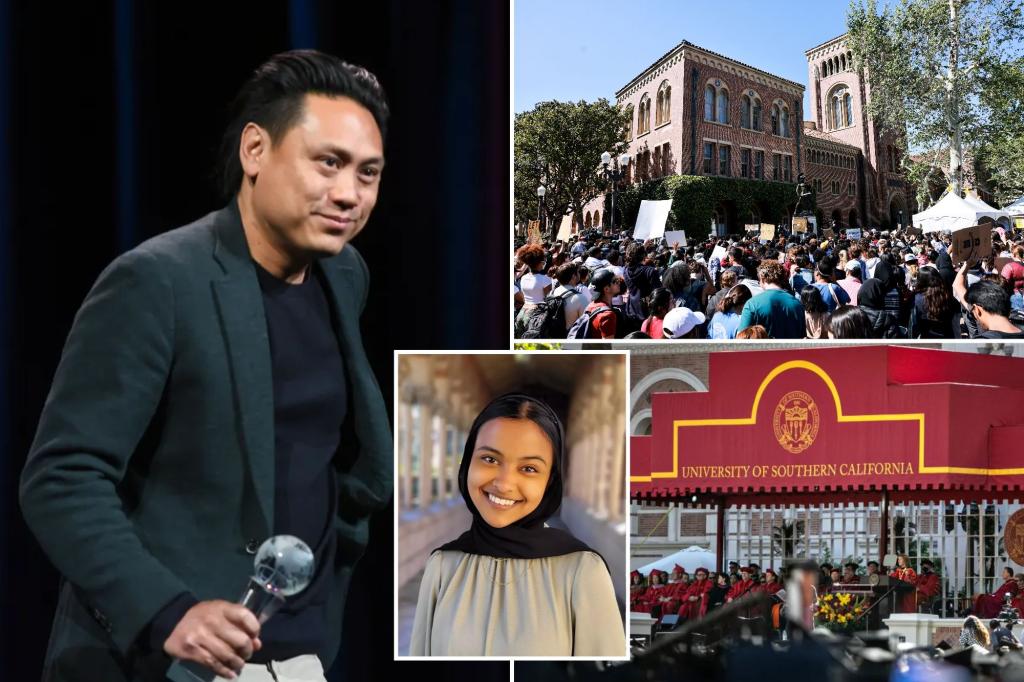The University of Southern California recently announced the cancellation of a keynote speech by filmmaker Jon M. Chu and the disallowance of student valedictorian Asna Tabassum from speaking at the commencement ceremony due to safety concerns. This decision was made in response to the alarming reaction to Tabassum’s selection as valedictorian, as she had expressed support for Palestinians in the Israel-Hamas war. While pro-Israel organizations praised the university’s decision, free speech groups and the Council on American-Islamic Relations condemned it, leading to protests on campus.
Following the controversy, university officials have decided to “redesign” the entire commencement program and release outside speakers and honorees from attending this year’s ceremony. Chu, a USC graduate known for directing films like “Crazy Rich Asians” and “Wicked,” was scheduled to deliver the keynote address. More than 65,000 people are expected to attend the ceremony, making it a significant event for the university. Tabassum, in response to the situation, expressed disappointment that her achievement was overshadowed by racist hatred due to her support for human rights for all.
The Israel-Hamas war has created challenges for colleges in upholding free speech and open debate, with campuses being tested during commencement season. At Columbia University, New York police removed an anti-Israel protest encampment and arrested over 100 demonstrators, most of whom were charged with trespassing. Some students involved in the protest claimed they were suspended from Columbia and Barnard College, with more suspensions expected as the school continues to identify participants. New York Mayor Eric Adams stated that while students have a right to free speech, they do not have the right to disrupt campus learning or violate university policies, leading to the removal of the encampment.
The cancellation of Tabassum’s speech and Chu’s keynote address at USC’s commencement ceremony has sparked debates over freedom of speech and the handling of controversial issues on college campuses. While some have commended the university’s decision, others have criticized it for limiting free speech and potentially setting a precedent for future incidents. The impact of the Israel-Hamas war on students, faculty, and commencement ceremonies is a clear indication of the ongoing conflicts and challenges faced by universities in balancing diverse perspectives and maintaining academic integrity.
The events at USC and Columbia University highlight the complexities of navigating political and social issues on college campuses, especially during milestone events like commencements. The clash between free speech rights, safety concerns, and university policies demonstrates the need for open dialogue and constructive engagement to address controversial topics. As colleges continue to grapple with the implications of the Israel-Hamas conflict and other global issues, it is crucial to uphold principles of inclusivity, diversity, and respectful discourse to ensure a conducive learning environment for all members of the academic community.


